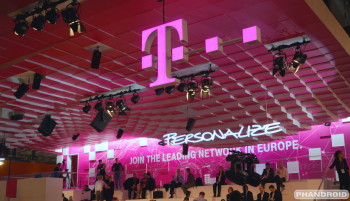
The FCC doesn’t seem to have a problem with T-Mobile’s Binge On, and neither should you
When T-Mobile announced Binge On — an account feature which would make video from several video sites exempt from data usage — many questions regarding net neutrality implications arose. Doesn’t the act of controlling traffic based on specific sources go against the idea of net neutrality? No, says John Legere, because — like Music freedom — Binge On doesn’t ask anyone to exchange money on either side, nor is anyone forced into using it.
And the FCC seems to agree. In fact, chairman Tom Wheeler says services and features like Binge On are coveted by the regulatory body because they promote innovation and competition. “Its clear in the Open Internet Order that we said we are pro-competition and pro-innovation,” said Wheeler after a recent FCC meeting. “Clearly this meets both of those criteria. It’s highly innovative and highly competitive.”
But others seem to disagree in the early going. Despite the fact that any video service can sign up for Binge On without any monetary or contractual commitments, whistleblowers suggest it can be used as a way to shape traffic. Their argument is that T-Mobile users might opt to use specific video services simply because they are supported under Binge On. Attorney John Bergmeyer, who writes for Public Knowledge, puts it this way:
T-Mobile should consider ways to offer customers more value in ways that do not have the competitive implications of its zero-rating efforts to date, including today’s “Binge On” announcement. For example, it could put the choice of which services to zero-rate in customers’ hands, not its own, or explore ways to allow customers to freely stream lower-quality media regardless of its source.
T-Mobile’s response would likely sound something like this: “those other video services are just as free to sign up for Binge On as anyone else.” Add to that fact that T-Mobile does give users a way to freely stream lower-quality media regardless of its source (T-Mobile announced that in the same breath), and the argument starts to sound silly.
Binge On is a good thing through and through. It represents consumerism in multiple facets: it provides big value, saves big money and — above all else — offers the ultimate choice to both users and providers. It’s a win-all situation that everyone can benefit from if people weren’t so concerned with upholding puristic values of old. Yes, we all want a free and open internet where data pipes aren’t manipulated by money or any other factors, but that doesn’t mean companies like T-Mobile shouldn’t be able to do what they can to help make the modern internet a more accessible and affordable experience at the same time.